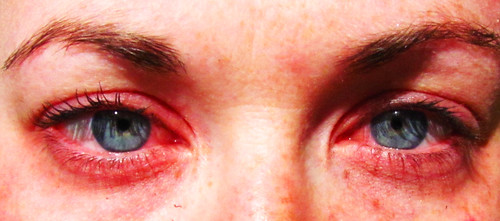Published: January 21, 2012
 Anew national report reveals that 45.9 million American adults aged 18 or older, or 20 percent of this age group, experienced mental illness in the past year. The rate of mental illness was more than twice as high among those aged 18 to 25 (29.9 percent) than among those aged 50 and older (14.3 percent). Adult women were also more likely than men to have experienced mental illness in the past year (23 percent versus 16.8 percent).
Anew national report reveals that 45.9 million American adults aged 18 or older, or 20 percent of this age group, experienced mental illness in the past year. The rate of mental illness was more than twice as high among those aged 18 to 25 (29.9 percent) than among those aged 50 and older (14.3 percent). Adult women were also more likely than men to have experienced mental illness in the past year (23 percent versus 16.8 percent).
Mental illness among adults aged 18 or older is defined as having had a diagnosable mental, behavioral, or emotional disorder (excluding developmental and substance use disorders) in the past year, based on criteria specified in the Diagnostic and Statistical Manual of Mental Disorders (DSM-IV; American Psychiatric Association [APA], 1994).
The Substance Abuse and Mental Health Services Administration’s (SAMHSA) National Survey on Drug Use and Health also shows that 11.4 million adults (5 percent of the adult population) suffered from serious mental illness in the past year. Serious mental illness is defined as one that resulted in serious functional impairment, which substantially interfered with or limited one or more major life activities. [continue reading…]
Published: January 21, 2012

Image: by parrchristy:Flickr
ou – or more accurately, your brain – has control over how allergic your skin is, suggests new research.
A team of neuroscientists have found that if someone has a lesser sense of ownership over a part of their body, their immune system also responds differently to that body part, treating it as ‘non-self’ rather than ‘self’.
These findings have direct implications for understanding autoimmune disorders such as multiple sclerosis and a range of neurological and psychiatric conditions characterised by a disrupted sense of ownership over one’s body, such as stroke, schizophrenia, autism, epilepsy, neuropathic pain, anorexia nervosa and bulimia. [continue reading…]
Published: January 21, 2012
 Approximately 3 percent of the U.S. population suffers from excessive, uncontrollable worry that reduces their health and quality of life. The condition, known as Generalized Anxiety Disorder, is difficult to overcome and is accompanied by a host of physical symptoms, including fatigue, muscle tension, irritability and poor sleep. However, a new University of Georgia study shows that regular exercise can significantly reduce anxiety symptoms in patients with GAD.
Approximately 3 percent of the U.S. population suffers from excessive, uncontrollable worry that reduces their health and quality of life. The condition, known as Generalized Anxiety Disorder, is difficult to overcome and is accompanied by a host of physical symptoms, including fatigue, muscle tension, irritability and poor sleep. However, a new University of Georgia study shows that regular exercise can significantly reduce anxiety symptoms in patients with GAD.
In a study published online in the Nov. 22 edition of Psychotherapy and Psychosomatics, researchers randomly assigned 30 sedentary women, ages 18-37 who were diagnosed with GAD, to either a control group or six weeks of strength or aerobic exercise training. Women in the exercise conditions completed two weekly sessions of either weight lifting or leg cycling exercise. Remission of the disorder, determined by psychologists who were unaware of the treatment each client received, was higher among exercisers and best among those who performed weight lifting exercise. Worry symptoms, the primary problem among individuals with GAD, were significantly reduced among the exercisers, and moderate-to-large improvements in other symptoms, such as irritability, feelings of tension, low energy and pain, were found. [continue reading…]
Published: January 20, 2012
This study demonstrates the maintenance of efficacy of cognitive behavioral group therapy and sertraline for Obsessive Compulsive Disorder (OCD) after 5 years of follow-up. This was due to the fact that a portion of the patients from both initial groups sought continuation of the original treatment or made a natural ‘crossover’. As OCD is a chronic disorder, probably the continuation of any one of the treatment strategies is mainly responsible for the maintenance of outcomes in the long run.
Cognitive-behavioral therapy (CBT) and serotonin reuptake inhibitors (SRI) are the first-choice treatments for obsessive-compulsive disorder (OCD).
The aim of the present study was to investigate whether the reduction in severity of OCD symptoms obtained with 12-weekly sessions of CBGT (cognitive behavioral group therapy) or with sertraline (100 mg/day) during the same period, in a randomized clinical trial, would be sustained over a 5-year period, as well as to compare the differences between the 2 treatments in the long term. [continue reading…]
 Anew national report reveals that 45.9 million American adults aged 18 or older, or 20 percent of this age group, experienced mental illness in the past year. The rate of mental illness was more than twice as high among those aged 18 to 25 (29.9 percent) than among those aged 50 and older (14.3 percent). Adult women were also more likely than men to have experienced mental illness in the past year (23 percent versus 16.8 percent).
Anew national report reveals that 45.9 million American adults aged 18 or older, or 20 percent of this age group, experienced mental illness in the past year. The rate of mental illness was more than twice as high among those aged 18 to 25 (29.9 percent) than among those aged 50 and older (14.3 percent). Adult women were also more likely than men to have experienced mental illness in the past year (23 percent versus 16.8 percent). 

